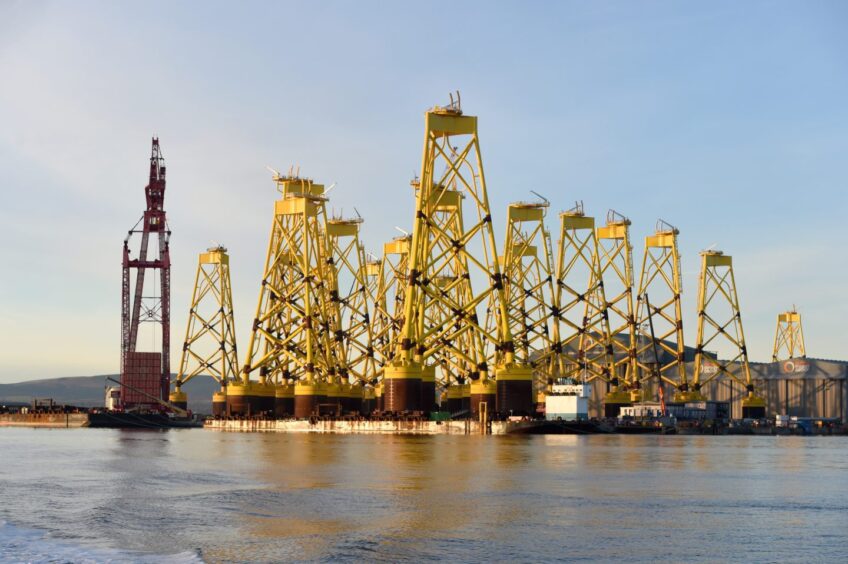
I’m rapidly becoming immune to the disappointment I feel on an almost daily basis by the news on renewables technology development and manufacturing coming out of Europe, North America, the Far East and Australia and New Zealand, but not Scotland.
I also now find myself shrugging my shoulders when hearing yet another overseas company is setting up a manufacturing/assembly plant in Scotland to take advantage of the ScotWind offshore wind programme.
The big question I constantly ask myself is why has this happened.
How have we got ourselves into such a weak position when we have organisations like Scottish Enterprise, the Net Zero Technology Centre and the Offshore Renewable Energy Catapult right here in Scotland?
Sadly though, I see very few people apart from myself and a few other likeminded types asking that question.
Astonishingly I’ve never heard any members of the Scottish Parliament ask why this is. First Minister’s question time these days is usually dominated by issues surrounding the NHS or ferries.
Few MSPs seem capable of making the connection between more high value manufacturing of things like wind turbines and the additional taxation they generate and how that could help fund the services we all depend on.
I don’t even remember anyone at Holyrood asking how a company intending to build a sodium ion battery factory in Dundee and employ up to 215 jobs locally and an additional 800 in the supply chain couldn’t raise the £200m or so in capital needed to do that, and as a result the company and all its intellectual property ended up being bought by a Dutch start-up.
Yet, these sorts of developments are fundamental to Scotland’s economic and industrial future and are essential elements of the so-called “Just Transition” which is a central Scottish government policy.
So if we’re not even asking the question, it’s unlikely we’ll come up with an answer. What I am sure of though is that the Labour Party’s “Great British Energy” isn’t going to help.
I have heard absolutely nothing from them about the renewable supply chain and manufacturing development.
Promises in Scotland of about 90,000 jobs are incredibly vague and to put that figure in context it’s about three times the number employed globally by Vestas, the Danish wind turbine builder.
That should tell us these numbers can’t be taken seriously. Indeed, neither really should we take seriously the numbers from any party when it comes to increasing renewables job numbers because none of them are actually making proposals to deal with the core problem which is private sector funding.
As the energy economist and academic Dieter Helm said recently in an interview, “If something sounds too good to be true it probably is”, and GB Energy with its promises of cheaper energy and tens of thousands of jobs is far too good to be ever true.
The Institute for Public Policy Research (IPPR) said in June that “investment in the UK is “significantly” behind the nearest competitor in the G7 group of wealthy nations” and that data from the Organisation for Economic Co-ordination and Development (OECD) showed that “when measuring total investment – which covers both businesses and government – the UK has had the lowest level of investment in the G7 for 24 of the past 30 years”.
But we’ve known about this in the energy sector for decades. It’s why so many overseas companies came here and why we have to import so much.
They know we won’t bother to compete. They’ll have a free run.
GB Energy is supposed to be funded over 5 years with £8bn or so from the extended, higher windfall tax on oil and gas production that a Labour government will impose irrespective of the potential impact it will have on jobs, future investment and so on. We all know the arguments.
But, as the television journalist Robert Peston pointed out in one of his recent podcasts there is another windfall which people have all but ignored.
The big banks – HSBC, Lloyds, Barclays and NatWest – announced earlier this year combined profits of £44bn – a 41% increase on their previous numbers – largely due to the higher bank interest rate they’ve been paid on the £750bn of reserves they’ve effectively deposited at the Bank of England as a result of quantitative easing.
Last month in Energy Voice my colleague Jeremy Cresswell pointed out the extent to which the banks are still funding oil and gas production and the four mentioned above are involved to one extent or another and have invested or loaned considerably more to the oil and gas industry than they have to the renewables sector.
So why exactly isn’t that extra nearly £20bn or so in profits the banks have made also on a Labour government’s target list? The EU doesn’t let banks earn interest on all its reserves at this rate.
Personally, I’d confiscate the lot and use it as an energy transition investment fund.
This is what’s making me and most others with an interest in the energy sector really anxious. There is no plan to achieve a “Just Transition” that can possibly work without the ability to fund it and nobody seems to have even a clue as to how to do that.
Sustained anxiety over the future is as big as any other health issue, but it seems nobody has a cure.
Recommended for you
